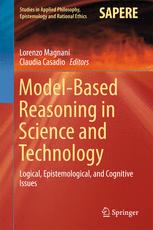

Most ebook files are in PDF format, so you can easily read them using various software such as Foxit Reader or directly on the Google Chrome browser.
Some ebook files are released by publishers in other formats such as .awz, .mobi, .epub, .fb2, etc. You may need to install specific software to read these formats on mobile/PC, such as Calibre.
Please read the tutorial at this link. https://ebooknice.com/page/post?id=faq
We offer FREE conversion to the popular formats you request; however, this may take some time. Therefore, right after payment, please email us, and we will try to provide the service as quickly as possible.
For some exceptional file formats or broken links (if any), please refrain from opening any disputes. Instead, email us first, and we will try to assist within a maximum of 6 hours.
EbookNice Team

Status:
Available5.0
12 reviewsThis book discusses how scientific and other types of cognition make use of models, abduction, and explanatory reasoning in order to produce important or creative changes in theories and concepts. It includes revised contributions presented during the international conference on Model-Based Reasoning (MBR’015), held on June 25-27 in Sestri Levante, Italy. The book is divided into three main parts, the first of which focuses on models, reasoning and representation. It highlights key theoretical concepts from an applied perspective, addressing issues concerning information visualization, experimental methods and design. The second part goes a step further, examining abduction, problem solving and reasoning. The respective contributions analyze different types of reasoning, discussing various concepts of inference and creativity and their relationship with experimental data. In turn, the third part reports on a number of historical, epistemological and technological issues. By analyzing possible contradictions in modern research and describing representative case studies in experimental research, this part aims at fostering new discussions and stimulating new ideas. All in all, the book provides researchers and graduate students in the field of applied philosophy, epistemology, cognitive science and artificial intelligence alike with an authoritative snapshot of current theories and applications of model-based reasoning.